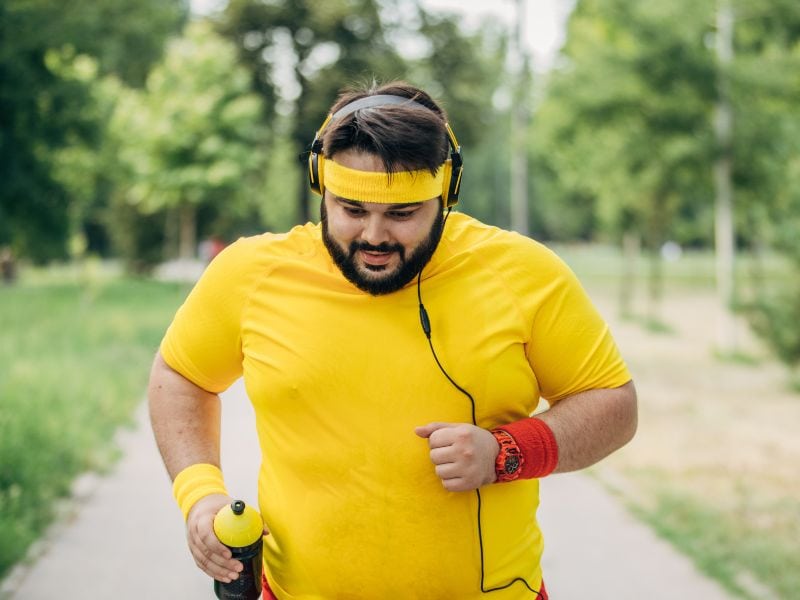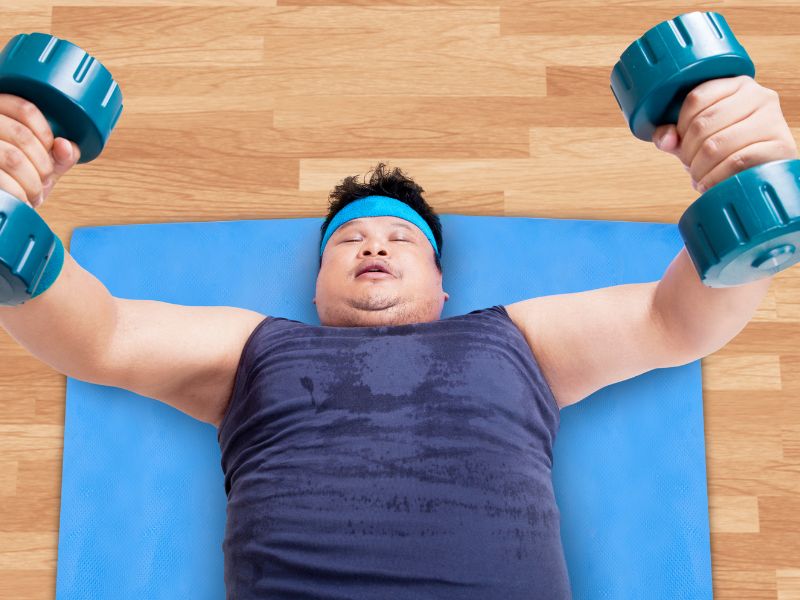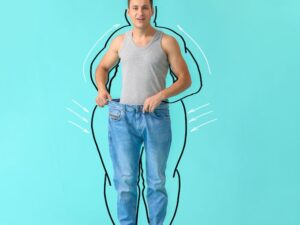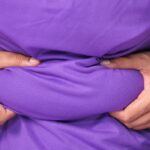If you ever wondered what would happen if you ate 1000 calories a day for a month, get ready.
I tried it myself and now I’ll tell you all about it.
From the good and bad moments to the surprising outcomes, come along for this wild month where every calorie matters.
Why I Decided to Try It
For years, I had struggled with my weight. I tried countless diets and exercise programs, but nothing seemed to work long-term. I was feeling frustrated and discouraged.
Then, I came across some articles about the 1000-calorie diet. The results were impressive, and the medical research behind it seemed promising. I was intrigued, but also cautious.
After consulting with my doctor and getting the green light, I decided to give it a try. I knew it wouldn’t be easy, but I was determined to finally reach my goals.
What I Ate
It was hard to stick to 1000 calories a day, but I planned my meals carefully.
I made sure to get all the nutrients I needed. I ate whole, unprocessed foods like fruits, vegetables, lean protein, and whole grains.
I also incorporated healthy fats from sources like avocados, nuts, and seeds. My typical day looked something like this:
- Breakfast: Oatmeal with berries and nuts (around 300 calories)
- Lunch: Salad with grilled chicken or fish and a side of whole-wheat bread (around 350 calories)
- Dinner: Salmon with roasted vegetables and quinoa (around 300 calories)
- Snacks: Fruits, vegetables, yogurt, or a small handful of nuts (around 50 calories each)
Read More: Meat and Fruit Diet Review : Meal Plan, Food List & More

Week 1: The Hunger Games Begin
The first week was undoubtedly the toughest. I said goodbye to my favorite snacks and big meals. I decided to eat smaller portions and count calories.
I had a meal plan with lots of vegetables, lean proteins, and healthy fats to help me.
Days 1-3
The initial days were marked by persistent hunger pangs. It felt like my stomach was protesting the sudden change.
I held my water bottle and understood it was temporary, so I continued. I found comfort in knowing that many people have this reaction when they eat fewer calories.
Days 4-7
Surprisingly, by the end of the first week, my body started adapting. The hunger wasn’t as intense, and I even noticed a slight boost in energy.
I attributed it to my body shifting into a state of ketosis, a metabolic state where it burns fat for fuel.
The scale showed a modest drop, and I felt a sense of accomplishment.
Week 2: Energy Surges and the Mental Game
As I entered the second week, a wave of newfound energy hit me.
It was as if my body had figured out this whole “1000 calories a day” thing and was now operating on a more efficient level.
Days 8-14
The mental clarity was a surprising bonus. I could focus better, and my productivity levels soared.
I started incorporating light exercises into my routine – nothing too strenuous, just enough to keep the blood flowing. The weight loss continued, and my clothes felt a tad looser.
However, I knew this wasn’t just about shedding pounds; it was about understanding the impact of such a diet on overall health.

Week 3: The Social Dilemma
By the third week, reality struck. Social gatherings became a bit tricky. My friends and family were surprised when I explained my dietary choices.
I started to become a nutrition evangelist. “Yes, I’m still eating, just not as much,” became my mantra.
Days 15-21
Physically, I was lighter on my feet, but mentally, the monotony of the restricted diet began to wear on me.
Cravings for my favorite foods intensified, and I had to summon all my willpower to resist temptation.
I realized that this journey wasn’t just a physical challenge; it was a test of mental resilience.
Week 4: Reflections and Revelations
As the final week unfolded, a mix of emotions swept over me. On one hand, I was proud of what I had achieved.
On the other, the anticipation of returning to a more normal eating routine sparked a sense of relief.
Days 22-30
The final stretch brought with it a renewed focus on the finish line.
My meals were carefully planned, and I paid close attention to my body’s signals. Weight loss had plateaued, but I wasn’t discouraged.
I had learned that this journey was more than just numbers on a scale.It was about understanding the relationship between food, body, and mind.
Results and Reflection:
I’m happy to report that the 1000-calorie diet worked for me. In just one month, I lost 10 pounds! But the weight loss wasn’t the only benefit. I also experienced:
- Increased energy levels: I used to feel sluggish and tired all the time. But after a few weeks on the diet, I had more energy and felt more motivated to move my body.
- Improved sleep: I began falling asleep faster and sleeping more soundly through the night.
- Better mental clarity: I found it easier to focus and concentrate.
- Reduced cravings: I no longer had the same intense cravings for unhealthy foods.
But it’s important to stress that this experiment had challenges. I was at risk of not getting enough nutrients, and it was mentally exhausting to restrict my diet.
I had to plan more for social situations and couldn’t enjoy meals without constantly thinking about calories.
1000 Calories A Day For A Month Challenges
Of course, there were also some challenges associated with this diet:
- Hunger: It was tough to always feel satisfied with 1000 calories. There were days when I felt hungry and craved more food.
- Social situations: Eating out with friends or family became difficult. I had to plan and make sure there were healthy options available.
- Exercise: I had to reduce the intensity and duration of my workouts to avoid muscle loss.
Overall, I’m happy with the results of my experiment “I ate 1000 calories a day for a month”.
It helped me lose weight, improve my health, and develop a healthier relationship with food.
Is It Right for You?
While this diet worked for me, it’s important to remember that it’s not for everyone.
It’s essential to talk to your doctor before starting any restrictive diet to ensure it’s safe for you.
Here are some things to consider:
- Your current health: If you have any underlying health conditions, this diet may not be safe for you.
- Activity level: To prevent muscle loss, you might need to eat extra calories if you’re an active person.
- Personal preferences: This diet probably isn’t for you if you can’t manage to stay under a 1000-calorie limit.
Tips for Success:
If you’re considering trying the 1000-calorie diet, here are a few tips:
- Plan your meals: You’ll be able to focus better and resist bad cravings by doing this.
- Eat slowly and mindfully: This will help you feel full and satisfied on fewer calories.
- Stay hydrated: Drinking plenty of water can help you feel full and curb cravings.
- Get enough sleep: When you’re well-rested, you’re less likely to make unhealthy food choices.
- Find a support system: Talk to your friends, family, or a registered dietitian for support and encouragement.
Sum Up
In wrapping up this month-long saga, I can’t help but reflect on the lessons learned. Eating 1000 calories a day for a month isn’t a sustainable lifestyle, nor is it a magic solution for everyone.
It was a temporary experiment. We wanted to understand the effects of extreme diets.
If you want to take a similar journey, my advice is simple: talk to a doctor or a nutritionist before making big changes to your diet. Everybody is different, and what helped me might not help you.
This experience showed me how important it is to have balance, moderation, and listen to my body. I am glad that I took on this challenge, but I am also grateful to go back to a more varied and sustainable eating routine.





